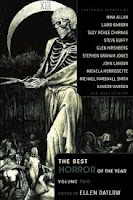Happy Easter to all; it's a lovely day here on Florida's Treasure Coast and as soon as I finish up here, I'll be out enjoying it.
With the exception of several ARCs (with still more to finish!) I've been just reading whatever the heck struck my fancy this month. The truth is that through the winter up until the "spring forward" time change I suffer from serious depression, so I just didn't have the energy this month or last to spend a great deal of time on literature I have to give a lot of thought to. In March, with a couple of exceptions, I tended toward easier books to get me over the hump until the days started staying sunnier longer. So without further ado...
this month:
literature/fiction:
How To Get Filthy Rich in Rising Asia, by Mohsin Hamid (Pakistan)
The Death of Bees, by Lisa O'Donnell (Scotland)
Philida, by Andre Brink (South Africa)
crime fiction
The Golden Calf, by Helene Tursten (Sweden)
The Dance of the Seagull, by Andrea Camilleri (Italy)
The Burn Palace, by Stephen Dobyns (USA)
A Not So Perfect Crime, by Teresa Solana (Spain)
The Missing File, by D.A. Mishani (discussion posted tomorrow)
odd/weird fiction
The Best Horror of the Year, Volume One, Ellen Datlow, ed.
The Best Horror of the Year, Volume Two, Ellen Datlow, ed.
The Best Horror of the Year, Volume Three, Ellen Datlow, ed.
The Best Horror of the Year, Volume Four, Ellen Datlow, ed.
Lovecraft Unbound, Ellen Datlow, ed
Prophet of Bones, by Ted Kosmatka (discussion to be posted April 2)
Last Days, Adam Nevill (actually read end of February)
nonfiction
The Nazi Seance: The Strange Story of the Jewish Psychic in Hitler's Circle, by Arthur J. Magida
And now, the
other book-related stuff:
1) The book group read The Light Between Oceans, by M.L. Stedman in February; the March book group was moved to this coming Tuesday because of Passover. It was pointed out a couple of times that this isn't our usual book club-type read, and the majority of us liked it but were put off by the ending. Those who really enjoyed the book were wowed by it, and I'll have to remember to tell them it's currently on the Miles Franklin Literary Award longlist. And as a sort of update to our Never Let Me Go group read, I watched the movie and decided that if you hadn't read the book, you'd be lost.
2) Added to the wishlist this month (as usual, a lot of obscure titles):
crime fiction:
none -- can you believe it?1) The book group read The Light Between Oceans, by M.L. Stedman in February; the March book group was moved to this coming Tuesday because of Passover. It was pointed out a couple of times that this isn't our usual book club-type read, and the majority of us liked it but were put off by the ending. Those who really enjoyed the book were wowed by it, and I'll have to remember to tell them it's currently on the Miles Franklin Literary Award longlist. And as a sort of update to our Never Let Me Go group read, I watched the movie and decided that if you hadn't read the book, you'd be lost.
2) Added to the wishlist this month (as usual, a lot of obscure titles):
crime fiction:
general fiction:
nonfiction:
Here I Am: The Story of Tim Hetherington, War Photographer, by Alan Huffman
Here I Am: The Story of Tim Hetherington, War Photographer, by Alan Huffman
The Longest Road: Overland in Search of America, From Key West to the Arctic Ocean, by Philip Caputo
3) Books bought this month (also filled with obscure titles, I'm sure!)
All That Is, by James SalterZ: A Novel of Zelda Fitzgerald, by Therese Ann Fowler
Odds Against Tomorrow, by Nathaniel Rich
Kite, by Dominique Edde
The Andalucian Friend, by Alexander Soderbergh
Moth Smoke, by Mohsin Hamid
Fanny and Stella, by Neil McKenna
Oil on Water, by Helon Habila
4) Currently reading:
The Midwife, by Jennifer Worth
The Tragedy of Fidel Castro, by João Cerquiera
Black Wings II, ed. S.T. Joshi
****5) Books I'm giving away this month -- take one, some or all, I don't care. I want to send them to good homes. (sorry, to US readers only) -- Unlike many other things in life, for you, these are absolutely 100% totally free; I'll even pay postage to whoever will give them a home. All you need to do if you want any of these is to let me know which book(s) you want, and then email me at oakesn@gmail.com with contact info. Taking the books does me a HUGE favor!
1.The Death of Bees, by Lisa O'Donnell
****5) Books I'm giving away this month -- take one, some or all, I don't care. I want to send them to good homes. (sorry, to US readers only) -- Unlike many other things in life, for you, these are absolutely 100% totally free; I'll even pay postage to whoever will give them a home. All you need to do if you want any of these is to let me know which book(s) you want, and then email me at oakesn@gmail.com with contact info. Taking the books does me a HUGE favor!
1.
2. ARC: How to Get Filthy Rich in Rising Asia, by Mohsin Hamid (I bought a copy so this one's available)
This isn't a contest -- it's first come, first served. After a week, what ever is left will be given away elsewhere.
I'm now off to enjoy a very warm and sunny day.












